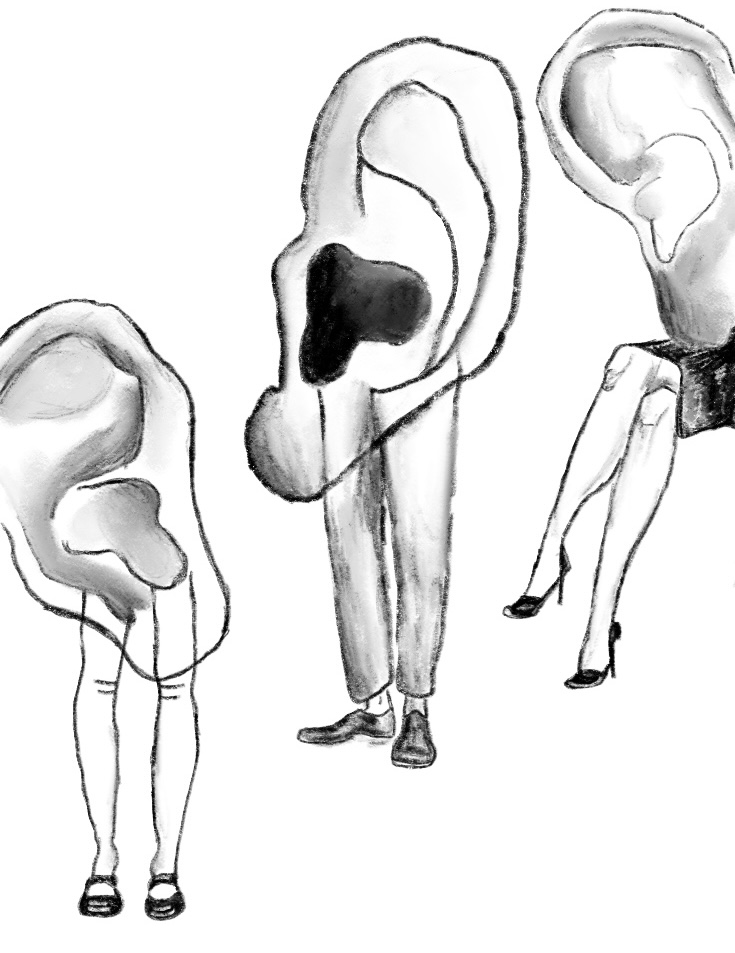Why are we catapulting in classrooms?
October 14, 2022
 This
piece represents the opinion of the author
.
This
piece represents the opinion of the author
.
I didn’t start talking until I was three years old.
One of my first conversations was with four walls in my grandmother’s home in Morocco. My mom tells me that I would “faire la bise’’ each wall, enthusiastically (and in Moroccan fashion) talking a mile a minute: “How are you!” “Oh, it’s so great to see you.” “How are the kids?” I nodded along to imaginary responses, carving out equal pockets of ‘eye contact’ to ensure each wall got its share of my attention. My family jokes that I haven’t stopped talking since I began.
I’ve always known I was a ‘Chatty Cathy.’ Middle school teachers frequently put me in time out. Progress reports always had some variation of the comment: “Bright student. But very loud. Too loud. Distracting. Please email me to chat about disciplinary measures.” Thankfully, I’ve shed the negative parts of my chattiness, but awkward parent-teacher conferences weren’t what inspired this change.
Picture this (you’re me, by the way):
You’re sitting in class, laptop out, and this time, not only did you read the assigned readings, you took notes. In true Bowdoin fashion, you were intellectually fearless. You, my dear friend, took that theory by storm. You initiate class discussion.
Immediately—not even 20 seconds have passed—your fellow classmates eagerly shoot their arms up in the air. They’re not even looking at you. They couldn’t be less interested. It’s like you’re not even talking. So you’re off your soapbox and you’re tuning in to discussion. Maybe those aforementioned classmates have some wisdom to impart. Surely, their eager interruption is warranted.
They start catapulting.
I kid you not, three students—Three. Back. To. Back.—performed some variation of ‘jumping off my point,’ as if they heard the point to begin with. What were they jumping off of? Air? The variety of exercises was impressive. Some jumped, others leapt, a small minority somersaulted.
You get the point. I wasn’t listened to. But don’t get me wrong, this isn’t a ‘woe is me’ piece. This isn’t a piece urging more people to listen to me (a TOQ for another time). This is my frustration with a culture that depreciates the value of conversation, and consequently, rejects learning.
As I see it, the point of conversation is sharing information. Talkers are teachers and listeners are learners. Currently, though, people are talking more than they’re listening. It shows everywhere. It shows in seminar classrooms, when students raise their hands at the beginning of another student’s point in a shameless display of self-importance and disinterest. It shows in half-assed interactions on the quad; for example, unexpectedly running into someone and initiating small talk out of obligation instead of interest. Why even bother asking “How are you?” when you’re actively walking away from the other person? What if they strayed from the socially acceptable response—“I’m good! How are you?”—and responded with, “Terrible, actually. A quad squirrel just stole my fast track pizza.” What would you do? Nothing. Your ‘dark academia coming-of-age main character’ playlist drowned out their voice anyways.
People love to hear themselves talk. What people like less is listening. We’re all human, we all do it. But if making someone feel appreciated isn’t enough to warrant a change, just know that each time you reject an opportunity to listen, you’re preventing your own growth.
Before you “piggy back,” “bounce off,” “return to,” or “somersault off” of someone else’s point, think to yourself: Am I really adding to the conversation? Or is Squarespace a better venue? In any case, I know four walls that would be happy to tune in.
Chayma Charifi is a member of the Class of 2025.
Comments
Before submitting a comment, please review our comment policy. Some key points from the policy:
- No hate speech, profanity, disrespectful or threatening comments.
- No personal attacks on reporters.
- Comments must be under 200 words.
- You are strongly encouraged to use a real name or identifier ("Class of '92").
- Any comments made with an email address that does not belong to you will get removed.


As an introvert, I throughly enjoyed reading your piece. I’m often told that I don’t participate in class enough or that I should talk more. But I enjoy hearing from my classmates and listening to how their ideas are brought forth. I participate in other ways, yet not many acknowledge the more “quiet” versions of participation such as going to office hours or staying after class to ask questions. I find copious amounts of value in listening to others; we shouldn’t simply speak to speak, but to respond in a thoughtful manner.